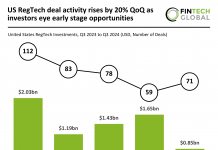While cybersecurity may be occupying a growing space in the attention of workforces worldwide, a recent report by Deloitte has found many workers may be taking their own cyber hygiene for granted.
Deloitte produces a Security Index every year, with the year’s report revealing that whilst many workers have high levels of concern regarding cybersecurity, many of them often fail to perform basic cyber hygiene behaviours in order to protect themselves.
The report – which is now in its 15th year – is based on a survey of 11,000 consumers across 11 countries. Following a major shift to working from home due to the constraints of the pandemic, the company argued that the ‘social transformation caused by the pandemic has made this year’s snapshot of global cybersecurity as important as ever before’.
The authors of the report commented, “A lack of awareness around basic cybersecurity risks and threats is causing employees to unknowingly undertake risky behaviour – putting their employers in jeopardy in the process.”
According to the Index, concerns around cybersecurity matters has experienced a 12-point rise in importance – with concerns around an individual’s health and the state of their employment subsequently decreasing. The report found that while cybersecurity awareness increased, a ‘lack of awareness’ around cybersecurity threats was leading employees to put their employer’s network at risk.
As an example of this, almost 40% of survey respondents said they would have no qualms about clicking on suspicious links, despite phishing attacks constituting around 80% of modern-day cybersecurity incidents. This carelessness was especially prevalent on mobile devices, with just less than half of those surveyed claiming they weren’t as careful when working on their phone as they are on their laptop on desktop computers.
It may not come as a surprise that the move to remote working brought along with it a considerable increase in security threats. The report highlighted this finding by revealing that cases of malware rose by 358% from 2019 to 2020, and the number of malware delivered over company networks grew by 68% in the second quarter of this year.
One of the key trends underlined in the report was that many respondents had a general lack of awareness when it came to digital hygiene and cybersecurity. This was detailed in the report, with around half of employees stating they had downloaded an app or software that hadn’t been approved by their IT team. The employees then tried to justify this by stating that they ‘regularly used these apps in their personal time’ therefore they assumed they were safe. A similar number of respondents blamed poor employer provision, with apps chosen by themselves seen as a better quality than those provided by an employer.
The report concluded, “Given the volume and complexity of cybersecurity threats today, businesses need to build trust with employees, closely monitor how and where applications are hosted, ensure the entire workforce has seamless connectivity and experience, and implement centralized controls if organizations want to guarantee protection from cybersecurity threats no matter where their employees are connecting from.”
One of the most damaging trends seen this year in cybersecurity has been the ballooning cases of ransomware attacks. A recent report by ransomware threat intelligence firm SonicWall has found 2021 will be the most expensive and dangerous year on record for ransomware attacks, with 495 million attacks logged already.
Copyright © 2021 FinTech Global











